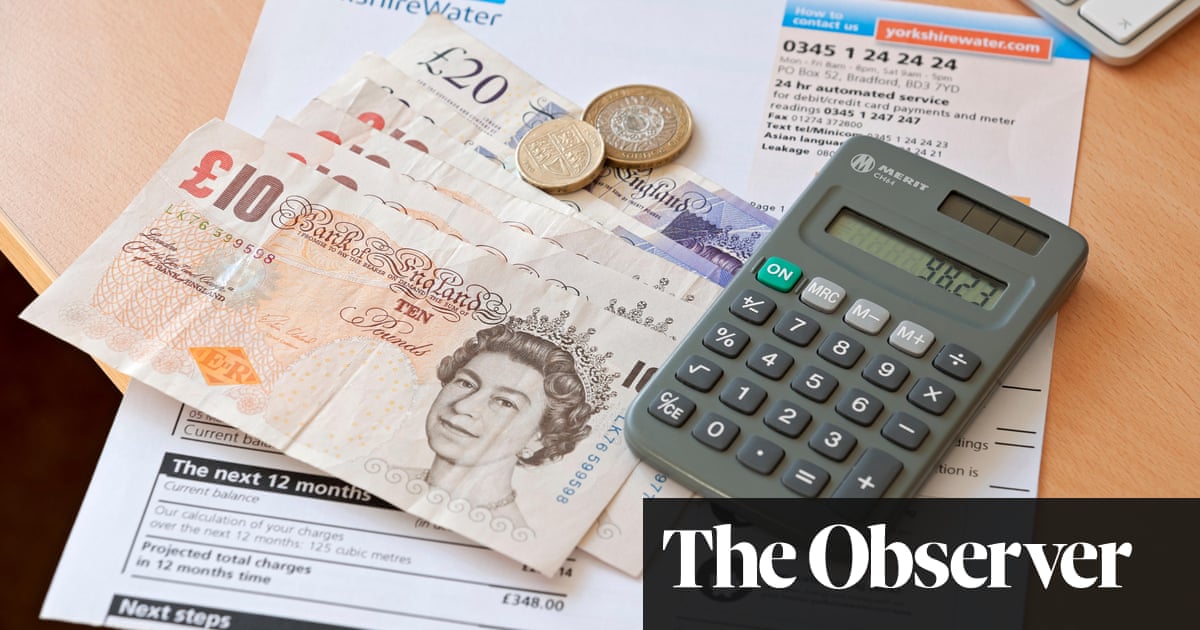
The number of UK households living in fuel poverty could climb to the highest level on record by this spring unless the government moves to soften the blow of a looming record high energy bill hike, according to a fuel poverty charity.
Around 4 million homes in the UK were already classed as fuel poor before a surge in global energy market prices triggered one of the steepest ever energy bill hikes in October, but campaigners are braced for a record increase in the numbers unable to pay their energy bills following another hike this spring.
The charity National Energy Action warned that the double blow to household bills could cause at least 2 million more homes to slip into fuel poverty compared with the start of 2021, taking the total to 6 million households. This would be the highest level of fuel poverty across the UK since records began in 1996.
The looming energy price hike has not yet been finalised by the regulator but Adam Scorer, chief executive of National Energy Action, told the Observer that the number of households in fuel poverty would “skyrocket” in April. This is expected to deepen the UK’s national energy crisis and compound the “year of the squeeze”, predicted by the Resolution Foundation last week, which threatens to trigger a “cost of living catastrophe” for hard-pressed families.
Households are already paying record prices to put petrol in their cars, and can expect the cost of consumer goods to rocket as fuel prices and supply-chain disruptions take their toll on major companies.
“Those on lowest incomes and in less-efficient homes will not just face financial hardship but intolerable living conditions, ill health and, for too many, a shortened life,” Scorer said. “This is not just conjecture. It will happen and we’ve had enough time to see it coming and act.”
Energy market prices climbed steadily over 2021 before leaping to record highs in October and fresh record highs in December. The market rally has fuelled one of the steepest energy price hikes in the history of the UK’s liberalised energy market.
Ed Miliband, shadow secretary of state for climate change and net zero, said: “Working people are being hit by a cost-of-living crisis which has seen energy bills soar, food costs increase and the weekly budget stretched. The government must take urgent action to support those people struggling to pay bills.”
Senior officials from the Department of Business, Energy and Industrial Strategy, the Treasury and No 10 have met with the industry regulator, Ofgem, and executives from the UK’s biggest energy suppliers in recent weeks to thrash out a plan to avert the looming national energy crisis. No measures have so far been agreed, and further meetings are scheduled for this week.
The government’s energy price cap could allow the average energy bill to rocket further to almost £2,000 a year when it is reset in April, from £1,138 in the previous year, to help cover the cost of dozens of failed energy suppliers, according to industry experts.
Labour has called for VAT on energy bills to be cut as a first step to help every household this winter, and the party would also “ramp up ambition with our plan to retrofit 19 million homes” to make them more energy efficient and help bring down household bills.
“It is a moral and social scandal that fuel poverty exists in modern Britain. But with national leadership, we can beat it – and ensure everyone has the warm, secure home they deserve,” Miliband added.
A government spokesperson said protecting consumers was its “top priority” which is why it was keeping in place the energy price cap, alongside schemes such as the £500m household support fund, the warm home discount, winter fuel payments for over-65s and cold weather payments.












